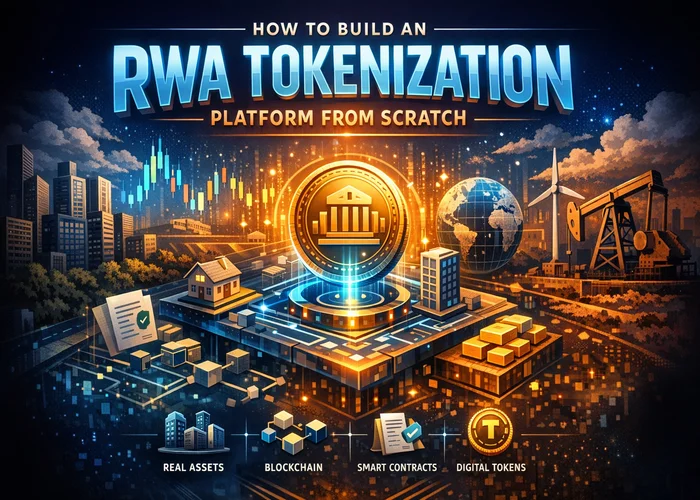Businesses looking to launch digital currency need expert guidance to avoid costly mistakes. Stablecoin consulting services provide this by helping companies design stablecoins that keep value steady, choose the right collateral, and follow rules for security and compliance. These services guide through smart contract setup, integration with payment systems, and risk management.
Stablecoin development is carefully planned to ensure the coin works across platforms and stays reliable. Stablecoin experts help with audits, monitoring, and managing liquidity so the currency maintains stability. With the right advice, businesses can adopt blockchain safely and efficiently.
The Importance of Stablecoin Consulting Services
Risk Reduction and Compliance
Launching a stablecoin exposes a company to legal and market risks. Stablecoin consulting services step in to map rules, set reserve checks, and build audit trails. They define peg rules, monitor collateral flows, and spot deviations quickly. Stablecoin consulting services also prepare documentation for regulators and auditors, reducing the risk of fines or shutdowns.
They bring stablecoin experts who know how to run reserve proofs and handle custody events. This structured approach reduces launch friction and creates clear go-live checkpoints. They also outline steps to fix issues if they occur.
Technical Design and Integration
A stablecoin must integrate seamlessly with wallets, exchanges, and payment systems. Stablecoin consulting services recommend token models, oracle selection, and gas optimization strategies. They guide on contract design, testing methods, and stress scenarios to ensure the token behaves reliably.
Stablecoin technology consulting advises on integration APIs, failover paths, and monitoring hooks to prevent downtime. Stablecoin development teams then implement contracts, set up nodes, and perform end-to-end testing. This ensures smooth transactions, settlement, and performance under real-world conditions.
Operational Readiness and Security
Operating a stablecoin requires skilled teams, tools, and rapid response protocols. Stablecoin consulting services create runbooks, alerting rules, and backup key management for timely issue handling.
Stablecoin experts train operations staff on incident response, oracle failures, and reserve gaps. They provide guidance on continuous monitoring, patching, and third-party audits. Companies can hire stablecoin consultants to provide interim operations leadership or train in-house teams. These measures ensure security, continuity, and knowledge transfer.
Market Strategy and Adoption
Driving adoption requires clear token mechanics and partner confidence. Stablecoin consulting services design use-case strategies, liquidity plans, and onboarding processes. Stablecoin technology consulting guides bank and exchange integrations, KYC workflows, and settlement timing to facilitate acceptance.
Businesses often hire stablecoin consultants to run pilot programs, connect with market makers, and track transaction volumes. Focused efforts on liquidity management and partner engagement help build trust and ensure steady token circulation.
Features and Solutions Offered by Stablecoin Development Companies
1. Modular Architecture and Auditability
The features of stablecoin development company offerings include modular design that separates minting, burning, and reserve management into independent units. Each module contains clear interfaces, logging, and test procedures, enabling seamless integration with wallets, exchanges, and auditors.
On-chain activity is paired with off-chain records to validate reserves and token flows. This structure allows upgrades or fixes in one module without affecting others, minimizing system risk. Audit trails are built into every process, and deployment checklists ensure that issues are quickly identified and corrected, providing transparency and reliability throughout the stablecoin lifecycle.
2. Cross-Chain and Interoperability
Cross-chain stablecoin solutions allow tokens to move securely across multiple blockchain networks. Bridges, wrapped tokens, and relay mechanisms are designed with sequencing, timeout, and failure-handling logic to prevent double-spending or stalled transfers. Integration with existing liquidity pools is supported, and reconciliation mechanisms automatically correct imbalances after errors.
Stablecoin technology consulting guides the selection of optimal cross-chain protocols and the implementation of monitoring systems that flag stuck transfers or mismatched balances. These solutions ensure tokens maintain value, liquidity, and operational continuity across diverse blockchain ecosystems.
3. Smart Contracts and Security
Stablecoin development solutions focus on secure, readable, and thoroughly tested smart contracts. Standardized minting and burning flows, role-based access controls, and multisignature custody mechanisms protect reserves. Contracts undergo formal verification, fuzz testing, and staged deployment on testnets before mainnet release.
Oracle feeds incorporate fallback mechanisms and delay windows to prevent sudden price disruptions. Event logging allows automated reconciliation of reserve actions, and controlled release limits reduce the risk of operational errors. These measures maintain contract integrity, safeguard assets, and support stable and predictable token operations.
4. Compliance, Bank Links, and Support
Stablecoin development companies incorporate regulatory compliance and banking integration into their services. Features include reserve reporting, KYC-linked transactions, and settlement timing aligned with bank requirements. Stablecoin regulation is addressed through documentation, legal verification, and audit-readiness procedures.
Stablecoin adoption by bank initiatives is supported via secure custody protocols, API interfaces, and settlement coordination. Stablecoin technology consulting provides guidance on legal filings, compliance checklists, and integration standards. These solutions ensure smooth adoption by financial institutions and reduce friction in operational, legal, and technical processes.
Stablecoin Use Cases and Future Adoption
1. Retail Payments and Remittances
Retail payments and remittances benefit from fast settlements and low fees. Stablecoin use cases include consumer payments, wage payouts, and cross-border transfers where traditional rails are slow. Stablecoin consulting services advise on peg models, liquidity routing, and wallet integration to reduce volatility during demand spikes.
Settlement finality, fee design, and dispute handling support merchant adoption. Auditable token flows and clear custody procedures ensure secure operations while minimizing operational friction and maintaining confidence in daily payment and remittance applications.
2. Treasury and Cash Management
Treasury operations utilize stablecoins for instant settlements, short-term liquidity management, and automated cash sweeps. Stablecoin use cases include programmable payouts, escrowed vendor payments, and automated foreign exchange adjustments using on-chain oracles.
Stablecoin consulting services estimate the cost to create a stablecoin, covering reserve models, legal compliance, and infrastructure setup. Budgeting includes custody fees, oracle feeds, and node maintenance. Clear cost structures reduce surprises, allow boards to approve funding, and ensure that treasury operations are efficient, auditable, and aligned with regulatory expectations.
3. Banking Integration and Institutional Onboarding
Banks require stablecoins for settlement speed, reserve transparency, and compliance with internal controls. Stablecoin adoption by bank partners depends on audit-ready logs, regulatory filings, and KYC workflows. Stablecoin consulting services provide integration plans detailing custody handoffs, settlement windows, and ledger reconciliation.
Risk assessments quantify exposure and recommend insurance coverage or segregated reserves. Institutions benefit from structured operational controls, verified audit trails, and documented settlement procedures, ensuring that stablecoins meet compliance requirements and integrate seamlessly with existing banking infrastructure.
4. Trading, Liquidity, and Market Support
Stablecoins support institutional trading and DeFi projects through predictable peg behavior and reliable liquidity. A stablecoin development company designs liquidity pools, integrates market makers, and sets oracle placements to maintain stability. Failover nodes, backup oracles, and transaction batching reduce settlement spikes and gas costs.
Cost assessments include hosting, audit, and legal fees, estimating the total cost to create a stablecoin based on reserves and compliance scope. Transparent sizing and operational planning attract liquidity partners and facilitate exchange listings while supporting market confidence.
5. Cross-Border Trade and Supply Chain Finance
Cross-border trade and supply chain finance benefit from atomic settlement and faster reconciliation using stablecoins. Stablecoin consulting services define settlement timing, on-chain invoicing, and dispute rules to reduce counterparty risk. Monitoring dashboards, liquidity buffers, and oracle contingency plans support operational resilience.
Pilot programs measure throughput, latency, and reserve coverage before wide deployment. Metrics and governance frameworks ensure operational readiness, enable informed decision-making, and provide cost exit plans. These measures improve transaction certainty, speed, and reliability for global trade and supply chain finance operations.
Custom Stablecoin Development Services for Your Business From Shamla Tech
Custom Stablecoin Token Architecture
Smart Contract Engineering
Integration and APIs
Security and Audit Readiness
Staffing and Knowledge Transfer
Conclusion
Professional stablecoin consulting services guide businesses through design, security, and compliance, reducing risks and improving adoption. Stablecoin development involves careful planning of smart contracts, reserve management, and integration with wallets and exchanges. Companies that hire stablecoin consultants benefit from expertise in audits, operational readiness, and regulatory alignment, ensuring smooth blockchain implementation.
Shamla Tech is a top stablecoin development company offering stablecoin consulting services for businesses around the world. Our stablecoin consulting services include custom stablecoin development, smart contract creation, cross-chain solutions, and operational support. With expert guidance, companies can implement stablecoins efficiently, maintain liquidity, and ensure regulatory compliance for long-term blockchain success.
Launch Your Own Stablecoin with Expert Stablecoin Consulting Services – Contact Us Today!










